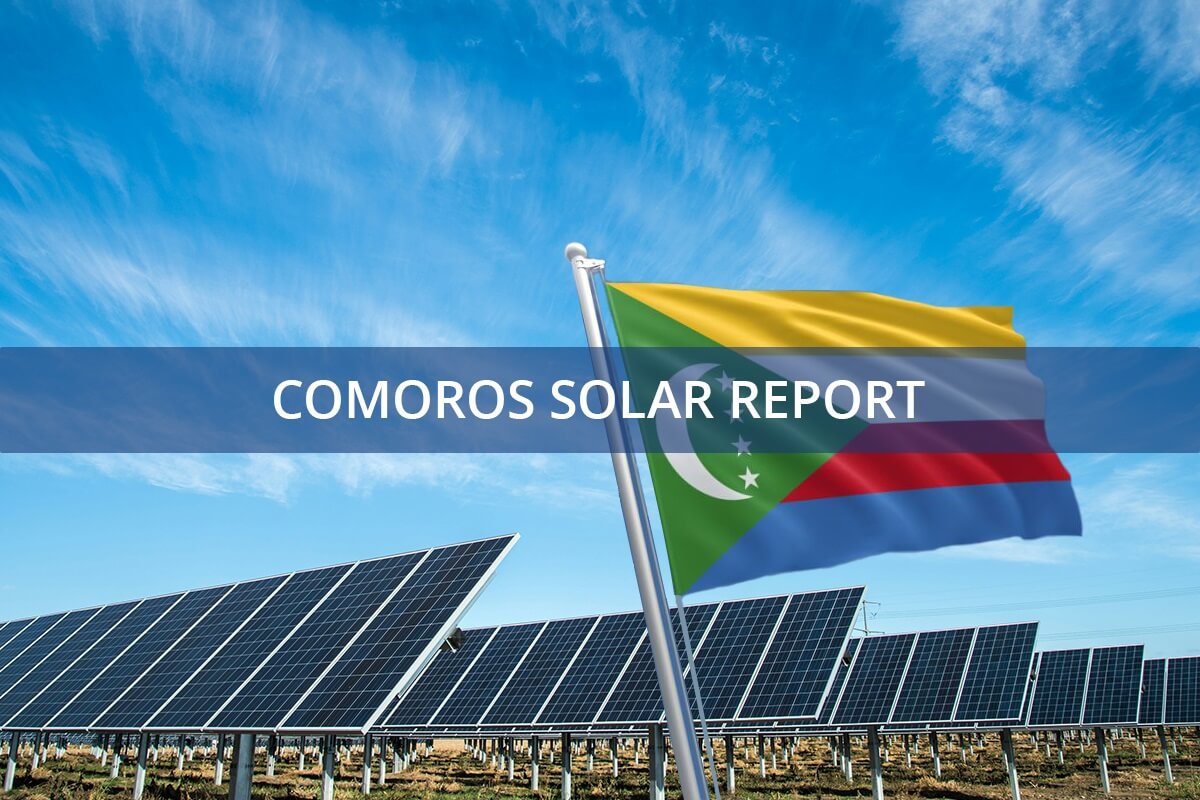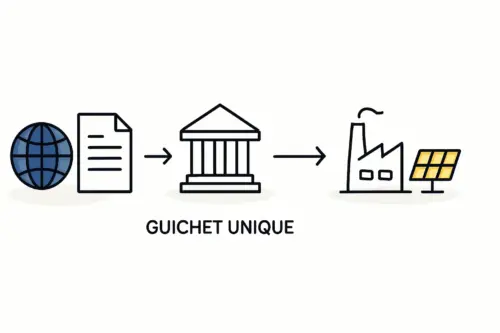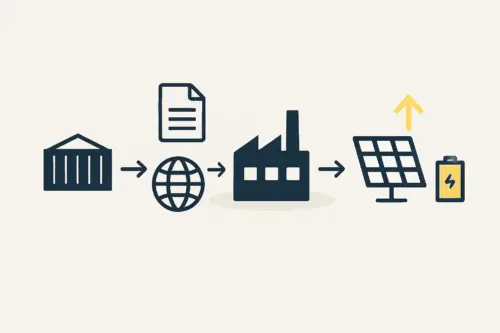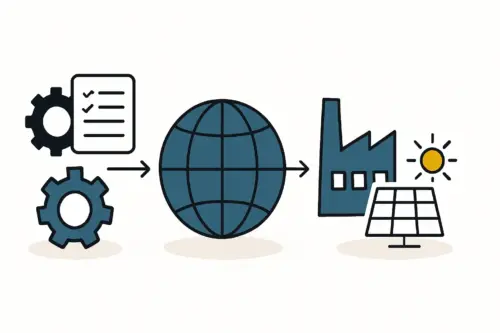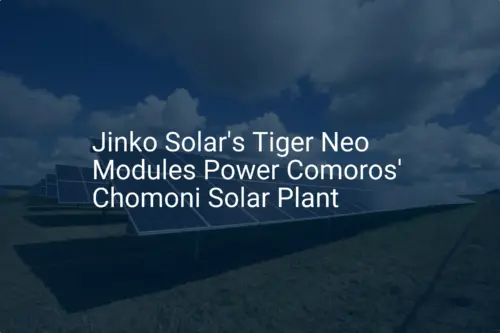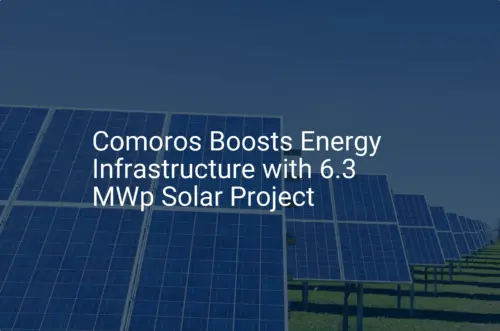Entrepreneurs considering solar module manufacturing in Africa often gravitate toward established industrial hubs. Yet, a surprising opportunity lies within the Union of the Comoros. With some of the highest electricity costs in the world, often exceeding $0.45/kWh, and a government goal of 100% renewable energy by 2030, the local demand is undeniable.
The country’s true strategic value, however, lies in its dual membership in two powerful economic blocs: the Organization for the Harmonization of Business Law in Africa (OHADA) and the Southern African Development Community (SADC).
This combination creates a unique launchpad: a legally secure environment for establishing a business, with preferential access to a regional market of over 340 million people. This article outlines the legal and technical framework for leveraging this opportunity, focusing on company formation under OHADA law and manufacturing modules that meet SADC quality standards for regional export.
Table of Contents
The Strategic Advantage of Comoros: A Gateway to African Markets
Located in the Indian Ocean, Comoros serves as a strategic link between mainland East Africa and other island nations. For a solar manufacturer, its value lies not just in its location but in its institutional memberships, which directly address two of the biggest concerns for any international investor: legal uncertainty and market access.
Legal Security via OHADA: Comoros joined OHADA in 2012, adopting a modern, transparent, and unified system of business laws used by 17 African nations. This immediately reduces legal risk and simplifies corporate governance.
Market Access via SADC: Its entry into SADC in 2018 opens doors to one of the continent’s most significant economic communities. By producing goods that meet SADC’s harmonized standards, a Comorian factory can export with fewer trade barriers.
These memberships create a clear, structured path for building a manufacturing business poised for both local impact and regional growth.
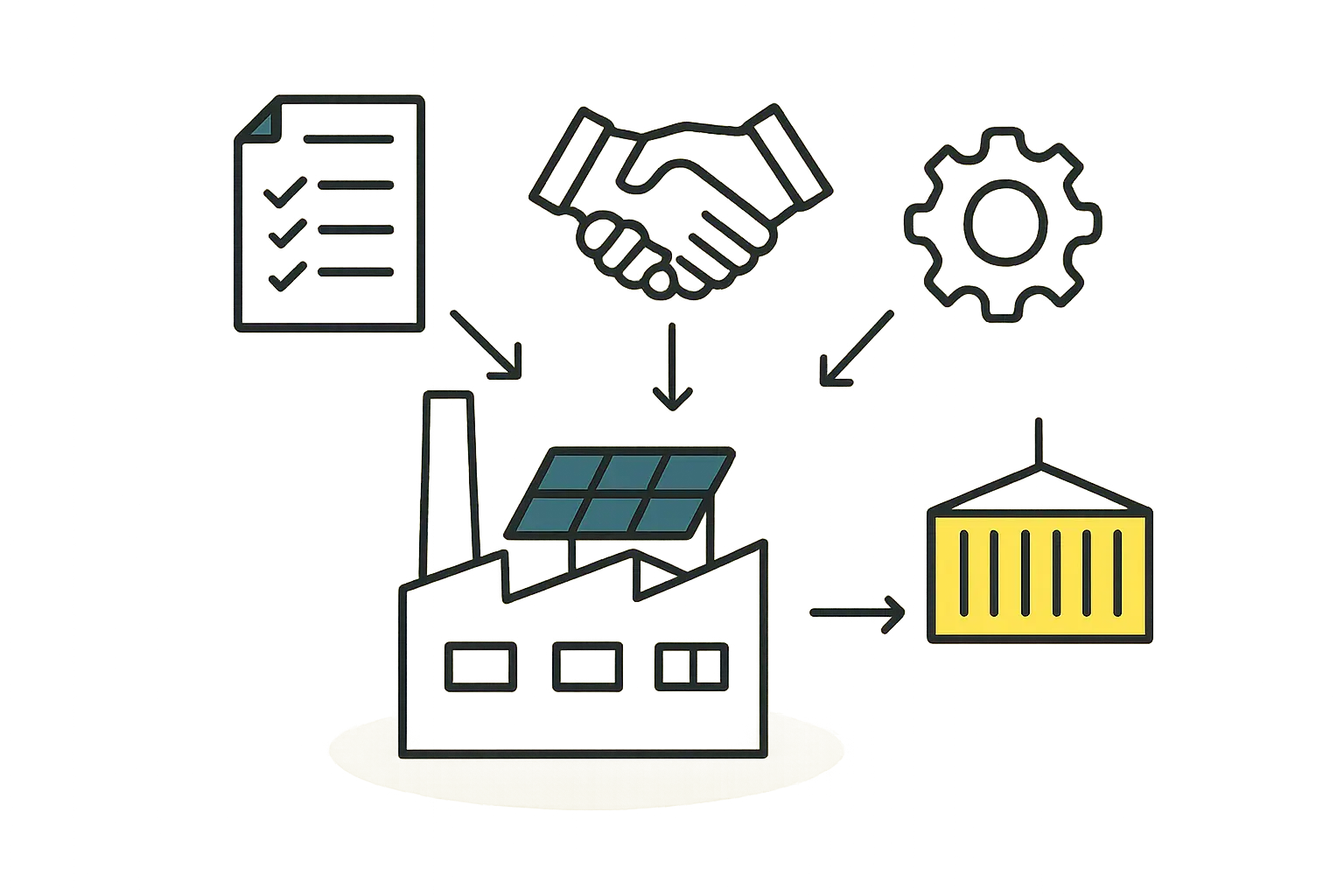
Understanding the Legal Foundation: Business Registration under OHADA
For any entrepreneur, especially one from outside the region, navigating a foreign legal system can be a major deterrent. This is precisely the problem OHADA was created to solve. It provides a common set of business laws, making the process of establishing and running a company more predictable and secure.
Instead of needing to master a unique and complex local legal code, an investor in Comoros operates under the same fundamental business rules that apply in countries like Senegal, Cameroon, and Côte d’Ivoire.
Ready to make big Profits?
The solar Industry is Booming
WE HELP NEWCOMERS to the solar industry start their own solar module production line. Customers can make BIG PROFITS by selling modules and finding investors, without wasting money and time on things they don't need!
Key Benefits of the OHADA Framework:
- Standardized Company Formation: The process for registering a company, defining shareholder rights, and establishing corporate governance is uniform and clearly defined in the OHADA Uniform Act on Commercial Companies.
- Reliable Contract Law: Commercial agreements are governed by a single, modern set of rules, providing greater certainty in disputes and transactions with suppliers or clients.
- Investor Confidence: A credible, international legal framework makes the business environment more attractive to financiers and international partners, signaling stability and a commitment to the rule of law.
Essentially, OHADA provides the secure legal ground for building a factory, minimizing risks that might be present in jurisdictions with less developed or predictable commercial laws.
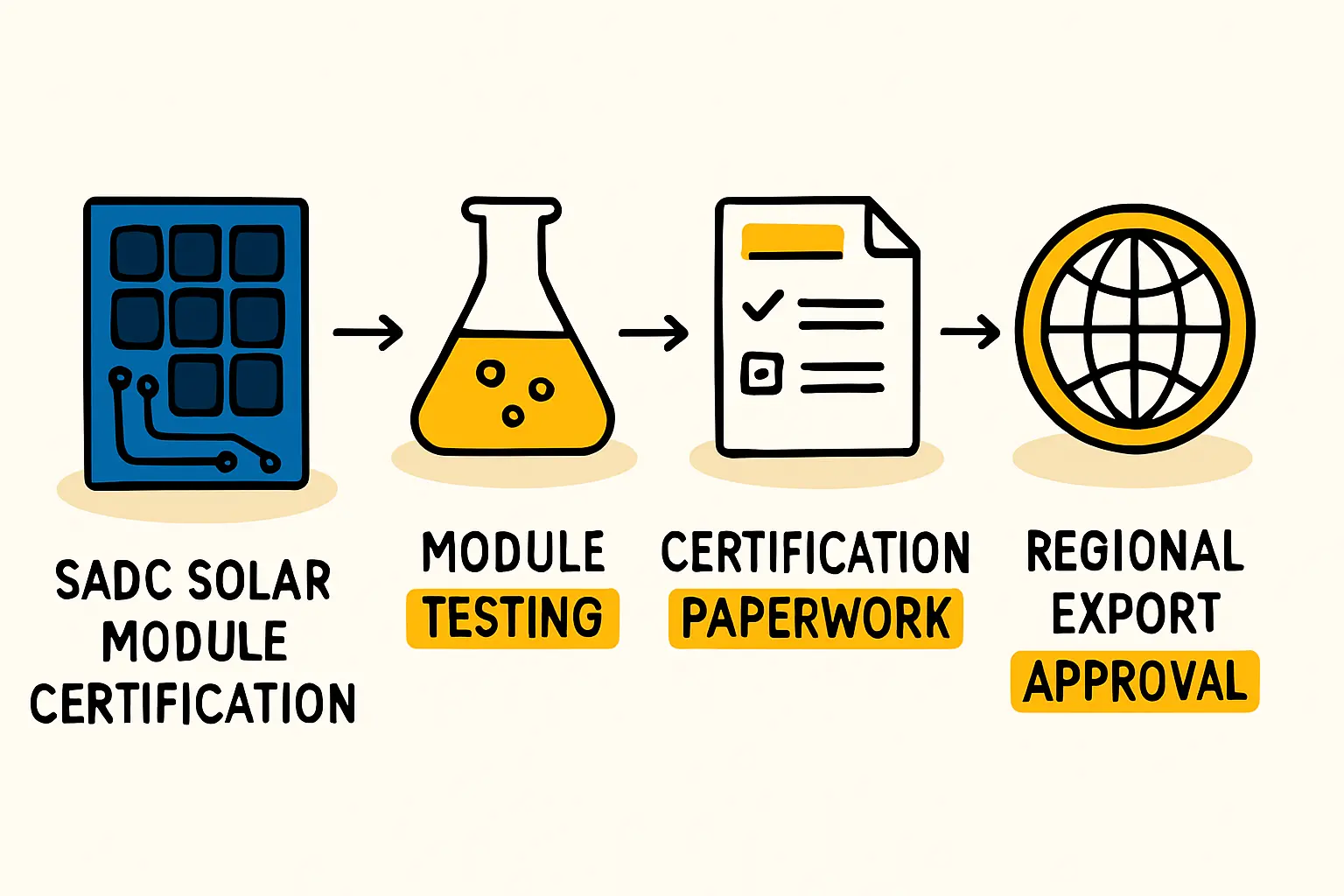
The Pathway to Regional Markets: Aligning with SADC Quality Standards
While OHADA establishes the legal right to operate, SADC provides the key to market access. The community’s primary goal is regional economic integration, which relies on the free movement of goods. To facilitate this, SADC promotes harmonized standards (SADCSTAN) to ensure products made in one member state can be trusted and accepted in another.
For a solar module manufacturer, this means production cannot simply focus on cost; it must be engineered from the ground up to meet specific quality, safety, and performance benchmarks. These standards are typically aligned with globally recognized norms from the International Electrotechnical Commission (IEC), particularly:
- IEC 61215: Defines design qualification and type approval for crystalline silicon terrestrial photovoltaic modules.
- IEC 61730: Outlines the requirements for module safety.
Adhering to these standards is not merely a technical detail—it is a core business strategy. Modules certified as compliant can be exported to lucrative markets like South Africa, Tanzania, Mozambique, and Angola. Non-compliant ones will be limited to the local market and seen as a higher risk by commercial buyers.
A Step-by-Step Framework for Establishing Your Comorian Solar Factory
Combining the OHADA legal structure with SADC technical requirements creates a clear roadmap for launching a solar manufacturing plant in Comoros. The process moves logically from legal entity to certified exporter.
Step 1: Legal Incorporation (OHADA)
The first step is formally registering the business entity under the OHADA framework. This process is relatively streamlined and provides immediate legal standing.
Step 2: Factory Planning and Setup
This phase is the most capital-intensive. It involves developing a comprehensive business plan, securing financing, and selecting an appropriate site. A key decision is whether to assemble a production line piece by piece or to source a complete turnkey solar manufacturing line from an experienced engineering partner. The total investment will depend heavily on the chosen capacity and level of automation, which is closely tied to selecting the right machinery.
Step 3: Production Aligned with SADC Standards
Quality control must be embedded in the manufacturing process from day one. This involves training staff, implementing rigorous testing protocols at each stage (e.g., cell testing, electroluminescence testing), and using quality raw materials. The goal is to produce modules that will pass certification tests on the first attempt.
Step 4: Formal Certification
Once the factory is producing consistent, high-quality modules, samples are sent to an accredited laboratory for testing against SADC-recognized standards like IEC 61215 and 61730. This formal solar module certification is the final technical gateway to regional markets.
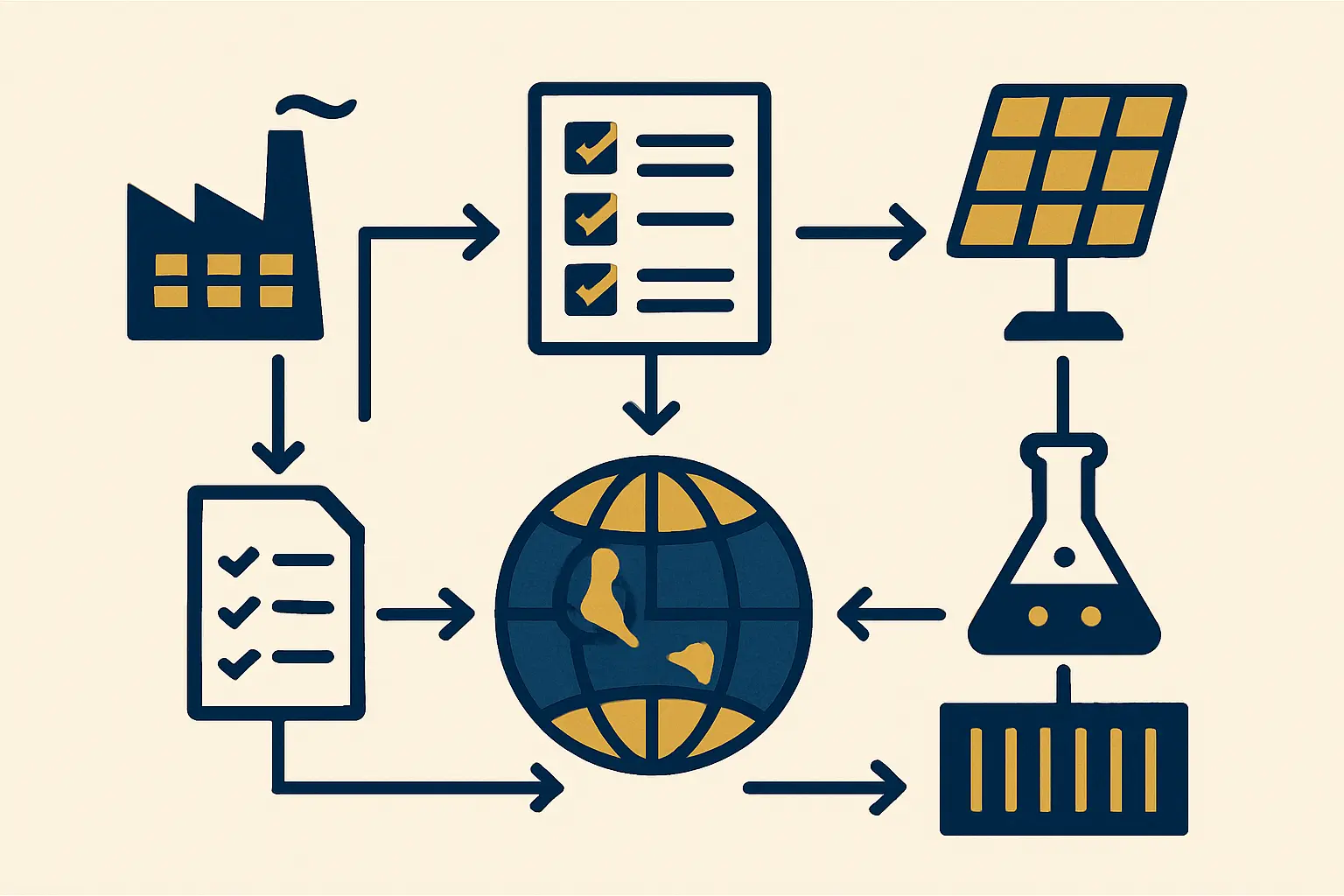
Common Challenges and Strategic Considerations
While the framework is clear, execution requires careful planning. Entrepreneurs should anticipate several practical challenges:
- Logistics: As an island nation, Comoros poses unique logistical challenges for importing raw materials and machinery, as well as for exporting finished goods. A robust supply chain strategy is essential.
- Skilled Labor: While a semi-automated line reduces the need for highly specialized staff, a core team of trained technicians and quality control managers is critical. Investment in training is non-negotiable.
- Bureaucracy: Although OHADA simplifies the legal structure, day-to-day interactions with local administrative bodies for permits and customs still require diligence.
Experience from J.v.G. turnkey projects in emerging markets shows that addressing these operational factors early in the planning phase is just as important as the legal and technical strategy.
Frequently Asked Questions (FAQ)
Q: Do I need a local partner to set up a business in Comoros?
A: The OHADA framework is designed to be accessible to foreign investors without mandating local partnerships for many company structures. However, having a local contact or consultant can be invaluable for navigating administrative processes and understanding the business culture.
Q: What are the main SADC markets I can export to from Comoros?
A: Key potential export markets include fast-growing economies on the East African coast such as Tanzania and Mozambique, as well as the largest market in the region, South Africa. Preferential trade terms within SADC can provide a significant competitive advantage.
Q: How long does the entire process take, from company registration to first export?
A: With a well-structured plan and an experienced technical partner, the timeline from company registration to producing the first certified modules can realistically be between 12 and 18 months. This includes machinery procurement, shipping, installation, and staff training.
Q: Are SADC standards the same as international IEC standards?
A: SADC standards for photovoltaic products are closely aligned with IEC standards, often adopting them directly. This is a major advantage, as it means a module certified for SADC is built to a global benchmark of quality and safety.
Conclusion: Your Next Steps in Exploring the Comorian Solar Opportunity
Comoros presents a compelling and unique proposition for solar manufacturing. It offers a legally secure and predictable environment through OHADA, combined with direct, preferential access to the expansive SADC regional market. For an entrepreneur, this combination reduces key investment risks while opening a clear path for growth.
The opportunity is not without its challenges, particularly in logistics and operational planning. However, for a well-prepared investor, Comoros is more than just a potential location for a factory; it is a strategic gateway to powering a significant part of the African continent.

